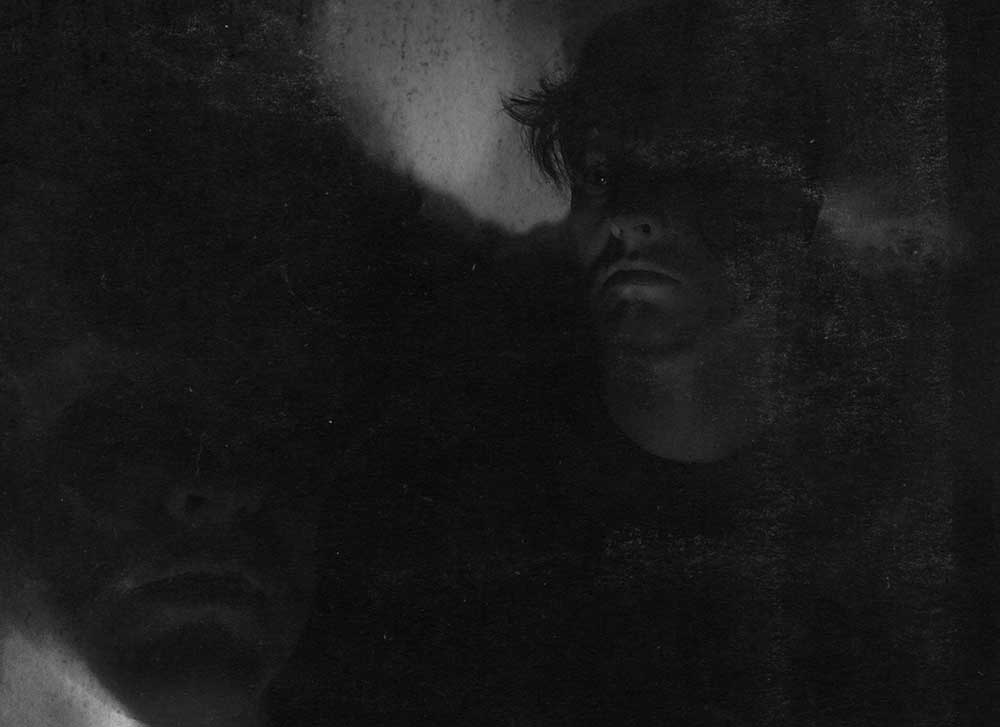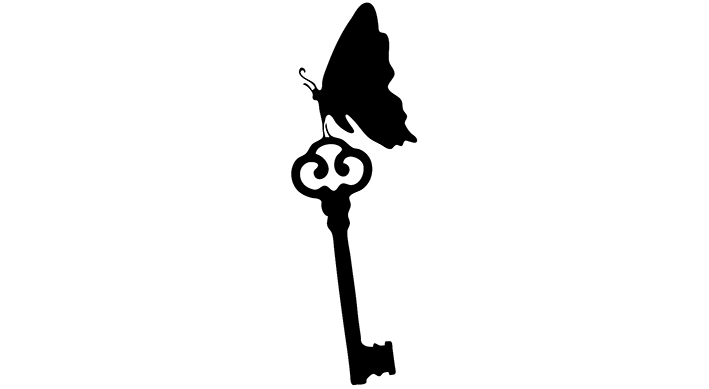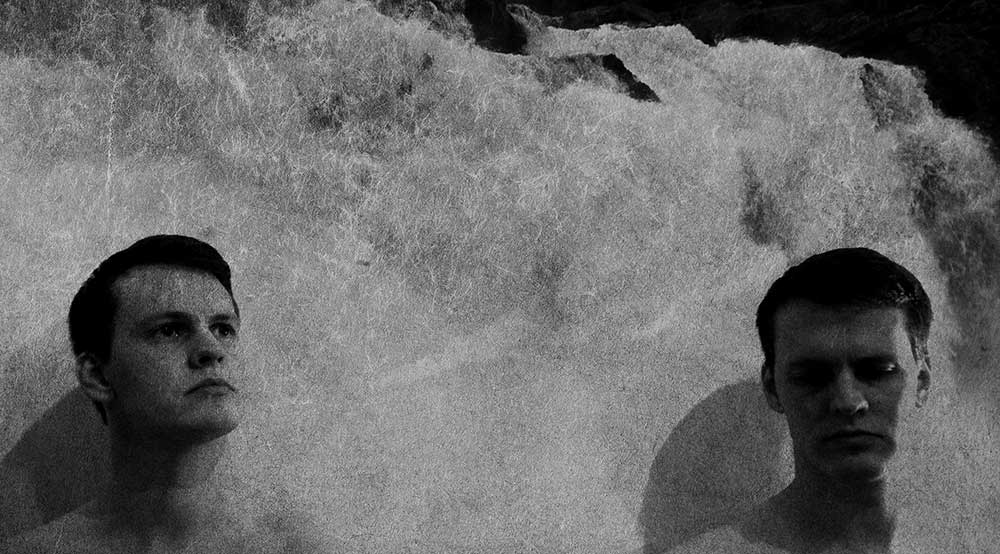Lustre
2021-02-03
by Niklas Göransson
Lo-fi black metal ambience riding the winds of bittersweet nostalgia – a conversation with the mastermind behind Swedish one-man project Lustre.
– “The Ashes of Light” was written over the course of a few days during the summer of 2016. The creative process was the same as always: I grab my guitar and try to come up with melodies and chord progressions which make me feel something. Or, rather, all of my compositions are results of my current emotional state. Who knows how these things work, right? What matters to me is that this takes place during moments when I have a strong will – even an outright need – to create. It’s also crucial that the material truly resonates with me; everything else is of secondary to no importance.
“The Ashes of Light” was released by Nordvis Produktion in April 2020. As Nachtzeit already mentioned, the entire thing was written within a matter of days – which is quite remarkable in itself. Nevertheless, in the project’s early days, a new LUSTRE album would typically take even less time than that to not only compose but also record.
– It’s true that the first four or so records were conceived and finished in something like two or three days. But bear in mind that the song structures are incredibly simple – and being in this rare mood, sitting with a guitar in my lap… there’s no stopping it. I’m not quite as efficient these days though, having a few more mundane matters to tend to than just music, coffee, and snus; completing a new album usually takes a couple of weeks… even though I often wish I could stay up all night just to record twenty minutes of distorted guitars drenched in way too much reverb. I doubt I’ll ever get closer to a religious experience than that.
This streamlined approach is what’s enabled Nachtzeit to maintain such an industrious release pace, not only with LUSTRE but also a number of other bands. Sticking to the project at hand, LUSTRE first surfaced in 2008 with the “Serenity” EP.
– I wanted to do everything myself at the time, so I went to a small CD replication place in my hometown and printed something like 150 copies. A few months later I wrote and recorded the debut full-length, “Night Spirit”, which was released by Italy’s De Tenebrarum Principio. The same label then released the subsequent two albums as well as a few other LUSTRE recordings. Eventually, I got in touch with Andreas and Nordvis, which turned into a fruitful collaboration that’s been ongoing for almost nine years now.

I’d describe LUSTRE as lo-fi and minimalistic black metal with keyboards taking a prominent role in the soundscape; guitars and vocals are used almost as background ambience. I sense that the spirits of “Filosofem” and SUMMONING reign strong here, presumably blended with a variety of non-metal influences.
– That would be correct, even though a bunch of other metal bands were also inspirational to what came to be known as LUSTRE. I believe the atmospheric aspect is primarily drawn from black metal in general, but BURZUM in particular. It’s mainly the heavily melodic element of LUSTRE, as well as my way of writing melodies, that might come from elsewhere. My personal amateurish understanding of the Swedish music tradition is that it’s particularly melodic, which has probably affected me somehow. My personal tendencies towards sentimentality might have played a role too. In addition, I easily get nostalgic; the bands I listened to whilst growing have up inevitably influenced the way I perceive and view music today. Revisiting those works still evokes something deep inside of me. Nowadays, it’s extremely rare that I find a song, let alone an entire album, which truly moves me. However, whenever this happens, I can listen to it ad nauseam. Such discoveries have the power to impact my mood on a fundamental level for weeks at a time. I suppose that’s one reason why I’ve taken this minimalistic approach to my own music.
Nachtzeit’s remarks about new music rarely leaving much of a mark is not an uncommon sentiment. When it comes to underground metal, it seems that the records one listened to during formative years are often associated with such a heavy feeling of nostalgia that it’s impossible to give them a decent comparison to music without these kinds of emotional connections.
– I was born in ’86 and can confirm that the albums I listened to around the time when I first discovered black metal – BURZUM, DARKTHRONE, EMPEROR, DISSECTION, and so on – hold profound importance to me. Exactly why it’ so difficult to connect with new music is an interesting question; I often wonder to what extent it has to do with a general inability to have profound ‘new’ experiences past a certain age, and to what extent the issue lies with the music itself. I tend to believe that foremost responsibility lies on the former, but I can’t quite rid myself of the sense that there must be something more to it. There’s so much new music out there, 99,9 percent of which makes me feel absolutely nothing. On the other hand, this is exactly what makes it seem equally plausible that the problem lies with me as opposed to the music itself.
Perhaps the fact that Nachtzeit is a semi-prominent musician himself – albeit in an underground black metal context – might be an added factor? I know many musicians who refuse to like any new bands from their own genre, even though few of them would openly admit as much.
– I honestly don’t believe that being part of the scene myself has anything to do with it. I frequently think to myself that I’d do basically anything to find some fairly recent band or project with an album – or, better yet, an entire discography – to delve into, but I keep getting disappointed and eventually resort to listening to the same old records. Another aspect could be that I, for the most part, struggle with finding my way back to the magic which for me is black metal… whether that pertains to my feelings and memories of first discovering the genre some twenty years ago, or to the period of my life when I wrote and recorded the first LUSTRE material. My point being, having difficulties getting the ‘right feeling’ when attempting to track down new music should come as no surprise when one’s expectations are almost unattainable.

What else has influenced your music?
– I’d say the northern Swedish nature I grew up around has probably been the main non-musical inspiration. Relationships with other people – and, in contrast to that, the necessary solitude closely related to creativity – is something I’ve identified as a driving force behind what I do and why. Even though this might not be directly incorporated into my artistic output, it has definitely inspired and motivated me to create in the first place. It may sound banal, yet such are the answers I get time and time again when asking myself these questions.
I’m assuming nature is also an inspiration to your thematic content?
– Well, I’ve always found it difficult – particularly with regards to LUSTRE – to discuss my concepts a long time after that rather special moment when everything comes rushing into my mind has passed. For me, writing lyrics is something which very much happens in the now. Whatever I write means something to me right there and then, but might very well leave my mind in a matter of seconds. This is something I contemplate once in a while: to what extent music and art in general comes from within or without. I’m aware that it might sound like some sort of New Age pablum, but I’ve had several experiences where it surely felt as if a melody ‘came to me’, rather than being something I created. Around the time of “Serenity” I was very much into meditation, which could explain why I approach writing lyrics this way. I wouldn’t say there’s anything particularly profound about the concept of “The Ashes of Light” though. I recall wanting to ‘return to the roots’, so to speak, and write something nature-oriented.

Many of LUSTRE’s visual designs have been highly untypical for black metal. Even though the actual motifs differ quite a bit, there seems to some manner of general red thread running through them – mostly nature-related or abstract themes with an emphasis on ambience.
– If there’s any kind of red thread to be found concerning the artwork, I’d say that LUSTRE generally deals with concepts such as innocence, reverence, and wonder. Even though it seems to me that few things are more human than a fear to explore, confront, and embrace the above-mentioned aspects of life, I’d also say that LUSTRE never dealt with what is ugly and truly dark. I think that has to do with how my time in HYPOTHERMIA and suchlike music projects led to me having difficulties even touching on those themes. I remember how I genuinely struggled with typical black metal concepts like individualism and isolation, which is why I couldn’t bring myself to name the third album by its original title, ‘I Awoke to the Scent of Spring’, but chose instead to use the word ‘They…’ Rather comical in hindsight, yet still dead serious for me at the time. How can you reach that special place where you want and need to be whilst even slightly limited by your own thoughts and feelings?
HYPOTHERMIA dealt more with concepts pertaining to depression, self-harm, suicide, substance abuse and so forth. Judging from his Metal Archives profile, Nachtzeit appears to have been involved in a number of projects with similar orientations.
– I’d say that these matters seeped into my personal life after participating in such music projects, more so than having been part of it beforehand – even though some things surely pushed me in that direction. Substance abuse isn’t something I’ve ever dealt with, even remotely, but I do have a predisposition to depression. Concerning LUSTRE, I guess the rather lonely process of creating music as a one-man band doesn’t exactly help when being prone to volatile frames of mind; however, that’s probably something the majority of artists need to deal with. It would be almost strange if giving so much of yourself didn’t affect you emotionally.
Do you still listen to those old records today?
– There was a point when I had serious problems listening to them, as well as the music I generally listened to during those periods of my life. This is no longer the case though: I was young and lacked the psychological maturity and tools required to deal with everything that happened inside of and around me. I guess the music I co-created was too tightly connected with my emotions during the time, whereas I now have the ability to listen to and appreciate it without being at all impacted the same way.



